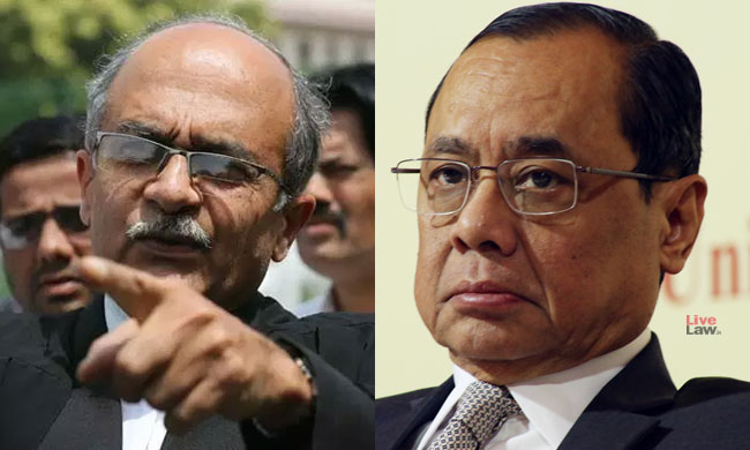Will CJI's Office Comes Under the Ambit of the RTI Act? SC Constitution Bench Reserves Judgment
MEHAL JAIN
4 April 2019 3:26 PM IST

Next Story
4 April 2019 3:26 PM IST
The proposition of disclosure of the correspondences between the highest functionaries in the judiciary and the government regarding the super-session of relatively senior judges and the rejection of advocates for elevation witnessed an intriguing exchange between the Supreme Court five-judge bench and lawyer Prashant Bhushan on Thursday. "Of late, we are experiencing good people, who...
